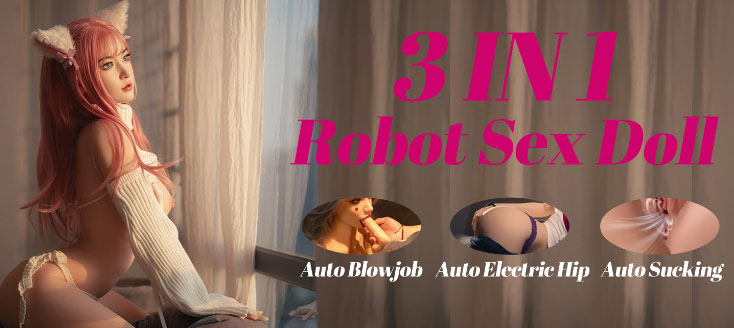How do people feel about the potential for sex dolls to reduce human trafficking and exploitation?
The potential for sex dolls to reduce human trafficking and exploitation is a complex and multifaceted issue that elicits a wide range of opinions. Here’s a detailed exploration of how people feel about this topic, covering various perspectives and considerations:
1. Understanding Human Trafficking and Exploitation
- Definition: Human trafficking involves the illegal trade of people for the purposes of forced labor, sexual exploitation, or other forms of coercion. This can include sex trafficking, where individuals are forced into prostitution against their will.
- Context: The conversation about sex dolls and their potential impact on human trafficking often centers around the idea that providing an alternative outlet for sexual desires might reduce the demand for trafficking victims.
2. Supportive Perspectives
- Reducing Demand for Exploitation: Some advocates argue that if individuals can satisfy their sexual desires through sex dolls, they may be less likely to seek out commercial sex services, thereby reducing demand for human trafficking. This perspective is based on the premise that sex dolls could serve as a substitute for human partners, potentially lowering the number of clients seeking out sex workers.
- Safe and Consensual Alternatives: Proponents highlight that sex dolls offer a safe and consensual way to fulfill sexual needs without harming real individuals. They argue that in situations where individuals might otherwise resort to illicit activities, sex dolls provide a legal and ethical alternative, thus potentially decreasing exploitation.
- Empowerment Through Choice: Some individuals believe that sex dolls empower consumers to make choices about their sexual experiences without contributing to the exploitation of vulnerable populations. By engaging with a doll rather than a trafficked individual, consumers may feel they are taking a stand against human trafficking.
3. Skeptical Perspectives
- Normalization of Objectification: Critics argue that sex dolls, especially those designed to resemble human beings, can contribute to the objectification of women (and men). They contend that promoting the use of sex dolls may inadvertently normalize attitudes that dehumanize individuals and reduce empathy for victims of trafficking and exploitation.
- Ineffectiveness in Addressing Root Causes: Many skeptics believe that while sex dolls may provide a temporary distraction, they do not address the underlying issues that lead to human trafficking, such as poverty, lack of education, and social inequality. They argue that focusing on sex dolls as a solution could detract from more effective methods of combating trafficking, such as awareness campaigns, legal reform, and support for at-risk populations.
- Potential for Escalation: There are concerns that reliance on sex dolls could lead to an increased desensitization to sexual violence and exploitation. Critics worry that by using dolls, individuals might develop a distorted sense of sexual norms and become more accepting of exploitative behaviors in real-life scenarios.
4. Mixed Feelings and Nuanced Views
- Personal Responsibility: Some individuals express that while sex dolls may serve as a substitute for some, personal responsibility and ethical considerations are crucial. They believe that consumers should be mindful of their choices and the potential implications of engaging with sex dolls, including their impact on societal attitudes toward sex and exploitation.
- Awareness and Education: There’s a consensus among many that education about human trafficking and its consequences is essential. While some see sex dolls as a potential tool for reducing demand, they emphasize the importance of educating consumers about the realities of trafficking and the significance of consent in all sexual interactions.
- Therapeutic Use: Some mental health professionals suggest that sex dolls could play a role in therapy for individuals with a history of trauma, helping them explore their sexuality in a safe and controlled environment. They argue that this could indirectly reduce the risk of individuals seeking out potentially harmful sexual experiences, thus lowering demand for trafficking.
5. Legal and Ethical Considerations
- Regulatory Frameworks: Discussions about sex dolls and human trafficking often touch on the need for regulations that ensure ethical production and marketing practices. Advocates argue that the industry should be transparent about its practices and prioritize the welfare of individuals involved in the sex trade.
- Ethics of Creation: There are ethical concerns regarding the creation of hyper-realistic sex dolls that resemble specific individuals, including victims of trafficking. Some believe that such products could perpetuate harmful fantasies and attitudes, further complicating the relationship between sex dolls and human exploitation.
Conclusion
The potential for sex dolls to reduce human trafficking and exploitation generates a wide array of opinions, reflecting the complexity of the issue. While some individuals see them as a viable alternative that could help combat demand for trafficking, others express concerns about the normalization of objectification and the need for more comprehensive solutions to address the root causes of exploitation. Ultimately, discussions surrounding this topic emphasize the importance of awareness, education, and a multifaceted approach to tackling human trafficking, ensuring that any potential benefits of sex dolls do not come at the cost of perpetuating harmful societal norms.

